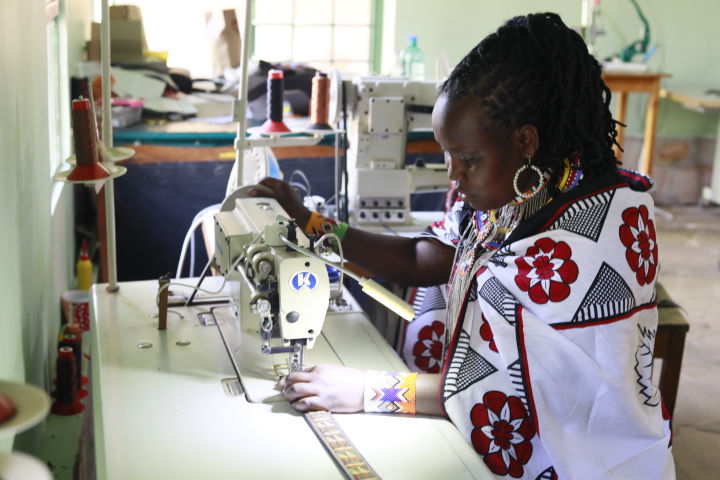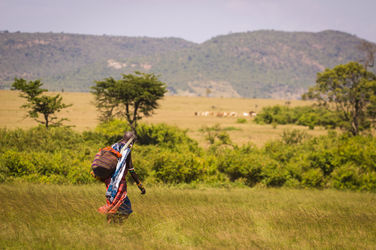Sustainable Livelihoods
Empowering Maasai Communities to self-identify their needs, goals, and aspirations.
The Maa Trust coordinates in house social enterprises: Maa Beadwork and Maa Bees, as well as entrepreneurship training and technical skills training in micro-enterprises through Maa Enterprise.
The Sustainable Livelihoods pillar has significant potential to empower Maasai women and youth whilst supporting them to diversify their household income streams through employment or the development of alternative sustainable livelihoods. This is particularly important in light of Covid-19 which has devastated the tourism industry, upon which the majority of households depend for a significant portion of their income.
The Maa Trust coordinates social enterprises, including Maa Beadwork and Maa Honey, as well as entrepreneurship training through Street Business School, technical skills training through Maa Enterprise and support to utilise income generated to uplift families through eco iko.
The goal of the social enterprises is to: reduce household poverty through income generated from financially self-sustaining social enterprises.
The goal of the livelihood skills training is to: diversify livelihood opportunities for community members through technical and business skills training


Sustainable Livelihoods
Maa Beadwork
Maa Beadwork is the largest social enterprise created by The Maa Trust. We commenced this project in 2013 at the request of Maasai women who felt they were not benefiting from the conservancies, as rent payments are largely passed only to men. The ladies wanted to be connected to the tourist market in the Mara, and to camp managers who seek high quality local produce for their shops. Through this initiative, women are now direct beneficiaries and as a result have become wildlife guardians.
The number of women engaged in Maa Beadwork is currently 469 in 17 beading groups across the Maasai Mara.

Sustainable Livelihoods
Maa Bees
Maa Bees is a flagship social enterprise of The Maa Trust, supported by the Saruni Basecamp Foundation (SBFK) and Tusk, that demonstrates how conservation and livelihoods can grow hand in hand. In 2024, the initiative supported 219 beekeepers (181 women and 38 men) across 10 groups in the Maasai Mara, building their capacity through 49 tailored training sessions.



Sustainable Livelihoods
Financial Management Training
In 2024, The Maa Trust trained 557 community members in financial management—equipping them with skills in entrepreneurship, money management, and microfinance. From launching shops and barberies to strengthening savings groups, families are now building sustainable businesses and securing brighter futures beyond livestock.

Sustainable Livelihoods
Street Business School
Rather than waiting for traditional employment, the Street Business School entrepreneurship programme ignites entrepreneurial potential amongst women and youth to lift themselves out of poverty. The six month training course is open to all, regardless of educational level, and is proving to have a profound impact on profits for graduates.



Sustainable Livelihoods
Environmental Justice and Gender Mainstreaming
The Environmental Justice and Gender Mainstreaming programme is breaking barriers for women in conservation across the Maasai Mara. With support from the Smithsonian Institution, The Maa Trust is driving change through workshops, gender audits, safeguarding training, and the Women in Conservation forum—creating safe spaces, amplifying women’s voices, and ensuring equal participation in protecting our shared landscape.

.png)




